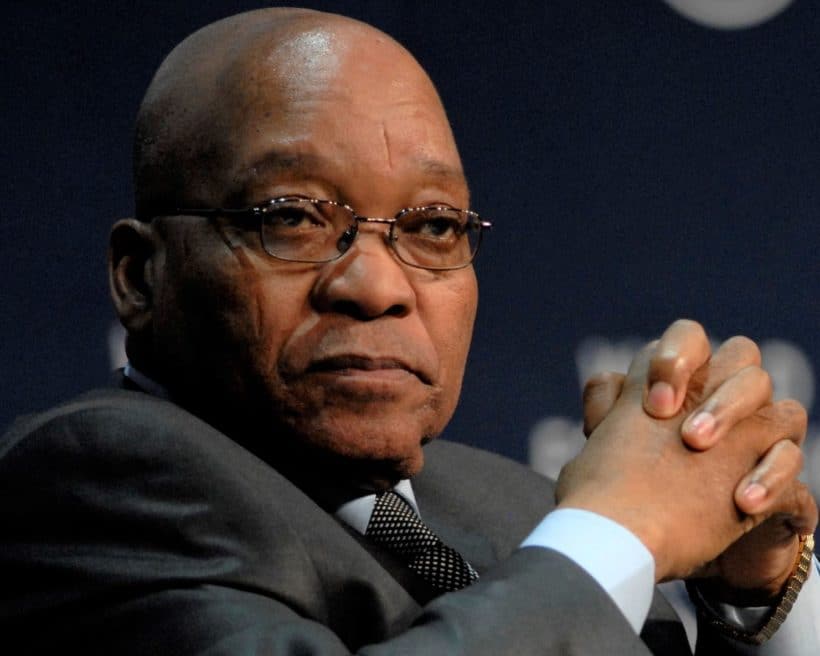
JOHANNESBURG, July 12 (Reuters) – South Africa deployed soldiers on the streets on Monday to quell violence that erupted in the wake of former president Jacob Zuma’s jailing, after days of riots left at least six people dead.
Police said disturbances were intensifying and 219 people had been arrested as the controversial ex-leader challenged his 15-month prison term in the country’s top court.
Smoke from burning buildings swirled in the air as items from burgled shops lay strewn by the side of the road in Pietermaritzburg in Zuma’s home province of KwaZulu-Natal (KZN).
The sporadic pro-Zuma protests that broke out when he handed himself over last week have quickly escalated into looting and arson, mainly in KZN but also in Gauteng where the biggest city Johannesburg is.
Some COVID-19 vaccination sites in Gauteng have closed due to safety concerns, the provincial government said, further delaying a sluggish immunisation campaign.
Opportunistic criminals appear to be taking advantage of the anger some feel over Zuma’s incarceration to steal and cause destruction, police said.
A statement from the military said “pre-deployment processes had started” following a request for assistance from a government intelligence body, but a Reuters cameraman in Pietermaritzburg saw armed soldiers already in the streets.
The rand dropped sharply and was trading down 1.6% against the U.S. dollar at 1505 local time (1300 GMT).
President Cyril Ramaphosa would address the nation about the violence later on Monday, his office said.
Any confrontation with soldiers risks fuelling claims by Zuma and his supporters that they are victims of a politically-motivated crackdown by his successor Ramaphosa.
Zuma, 79, was sentenced late last month for defying a constitutional court order to give evidence at an inquiry investigating high-level corruption during his nine years in office until 2018.
The decision to jail him resulted from legal proceedings seen as a test of post-apartheid South Africa’s ability to enforce the rule of law, including against powerful politicians.
In a virtual hearing on Monday, Zuma’s counsel asked the constitutional court to rescind his jail term, citing a rule that judgments can be reconsidered if made in the absence of the affected person or containing a patent error. But legal experts say Zuma’s chances of success are slim.
RUBBER BULLETS
Footage shot by Reuters in the Katlehong township in Gauteng showed police firing rubber bullets at looters to disperse them, as liquor and grocery stores were broken into.
The sale of alcohol is currently banned under restrictions designed to ease pressure on hospitals during a severe third wave of coronavirus infections.
Government intelligence structure NatJOINTS said as of Monday morning the bodies of four people had been found – at least two with gunshot wounds – in Gauteng. Two deaths had happened in KZN, and all six were being investigated.
Ramaphosa said on Sunday there was no justification for violence and that it was damaging efforts to rebuild the economy after COVID-19.
The movement of freight out of Durban port’s container terminal was disrupted, while a logistics executive who asked not to be named said he had taken all 300 of his trucks transporting metals like copper and cobalt off the roads because of the unrest. He was re-routing them from mines in Zambia and the Democratic Republic of Congo to ports in Tanzania, Mozambique and Namibia.
Zuma’s imprisonment marks a significant fall from stature for a leading figure in the liberation-movement-turned-ruling party, the African National Congress (ANC).
He was once jailed by South Africa’s pre-1994 white-minority rulers for his efforts to make all citizens equal before the law, but for many his reputation is now tarnished after a string of sleaze and graft scandals.
The corruption inquiry that Zuma has refused to cooperate with is examining allegations that he allowed three Indian-born businessmen, Atul, Ajay and Rajesh Gupta, to plunder state resources and peddle influence over government policy. He and the Gupta brothers, who fled the country after his ouster and are believed to be living in Dubai, deny wrongdoing.
Zuma also faces a corruption case relating to a $2 billion arms deal in 1999 when he was deputy president. He denies the charges in that case.
(Additional reporting by Wendell Roelf in Cape Town, Tanisha Heiberg, Helen Reid, Nqobile Dludla and Shafiek Tassiem in Johannesburg, Siyabonga Sishi in Pietermaritzburg and Karin Strohecker in London Editing by Mark Heinrich, William Maclean)